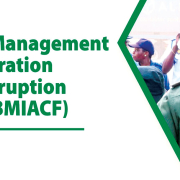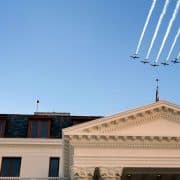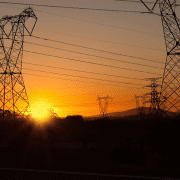|
Getting your Trinity Audio player ready...
|
In his latest address to the nation on Thursday, 23 July, President Cyril Ramaphosa uttered strong words of warning to those complicit in corrupt actions at this time – especially regarding the financial and other assistance given by the government to needy South African residents.
This is the sternest – and the longest – speech Ramaphosa has made about the corruption that citizens have long been condemning. Indeed, in some previous speeches the president has been completely silent on the matter.
Could this be the start of a real clamp-down on corruption, and real consequences for perpetrators? Time will tell.
The relevant part of Ramaphosa’s is reproduced in its entirety below:
But what concerns me, and what concerns all South Africans, are those instances where funds are stolen, where they are misused, where goods are overpriced, where food parcels are diverted from needy households – where there is corruption and mismanagement of public funds.Increasingly, we are hearing allegations about fraudulent UIF claims, overpricing of goods and services, violation of emergency procurement regulations, collusion between officials and service providers, abuse of food parcel distribution and the creation of fake non-profit organisations to access relief funding.
From the outset of our response to the pandemic, we have been quite clear that there should be no scope for corruption in the use of these resources. More so than at any other time, corruption puts lives at risk. We therefore put in place several preventative measures.
National Treasury issued regulations to ensure that emergency procurement of supplies and services meet the constitutional requirements of fairness, transparency, competitiveness and cost effectiveness. Regulations were put in place to prohibit unjustified price hikes and ensure the availability of essential goods. Since the declaration of the national state of disaster, the Competition Commission has investigated over 800 complaints of excessive pricing.
It has so far prosecuted or reached settlements with 28 companies, imposing penalties and fines of over R16 million. The Auditor-General has also adopted special measures to safeguard funds committed to the fight against Covid-19.
Special audits have been undertaken to detect and prevent misuse of these funds and to identify risks in the system. In addition to all these measures we have established a collaborative and coordinating centre to strengthen the collective efforts among law enforcement agencies so as to prevent, detect, investigate and prosecute Covid-related corruption. This centre brings together nine state institutions.
These are the Financial Intelligence Centre, the Independent Police Investigative Directorate, the National Prosecuting Authority, the Hawks, Crime Intelligence and the SAPS Detective Service, the South African Revenue Service, the Special Investigating Unit and the State Security Agency.
With an operational hub at the FIC, this centre is investigating allegations of corruption in areas such as the distribution of food parcels, social relief grants, the procurement of six personal protective equipment and other medical supplies, and UIF special Covid-19 scheme.
At least 36 cases are currently at various stages of investigation and prosecution. We are determined that every instance of alleged corruption must be thoroughly investigated, that those responsible for wrongdoing should be prosecuted and that all monies stolen or overpriced are recovered. In order to speed up and strengthen the process of dealing with corruption, I have today signed a proclamation authorising the Special Investigating Unit – the SIU – to investigate any unlawful or improper conduct in the procurement of any goods, works and services during or related to the national state of disaster in any state institution.
This empowers the SIU to probe any allegations relating to the misuse of Covid-19 funds across all spheres of the state.If the SIU finds evidence that a criminal offence has been committed, it is obliged to refer such evidence to the prosecuting authority. It is also empowered to institute civil proceedings for the recovery of any damages or losses incurred by the state. To ensure that action is taken speedily, I will be getting interim reports on investigations every 6 weeks.
The fight against the coronavirus pandemic is stretching our capabilities and resources to their limit. We are therefore determined that there should be no theft, no wastage and no mismanagement of public funds.
The consequences for those who break the law or bypass regulations will be severe. The people of South Africa require nothing less than full accountability from those who have been elected and appointed to serve them. We commend those provincial governments and municipalities that have already started taking disciplinary action against officials accused of improper conduct and, where appropriate, have reported them to the law enforcement agencies.
All the funds that we have committed must reach their intended recipients and must be put to their proper use. We will take steps to recover all funds that have been stolen or where goods have been overpriced.
The success of our fight against corruption depends on the involvement of all citizens and all parts of society. We will work with various leaders and social formations to strengthen our efforts to safeguard the precious resources that we need to overcome the disease and to protect our people from its damaging effects.
As all South Africans work together to limit transmission and prepare for the peak of infections throughout the country, we are also looking towards the extraordinary measures that will be needed to rebuild our economy.
President Cyril Ramaphosa








